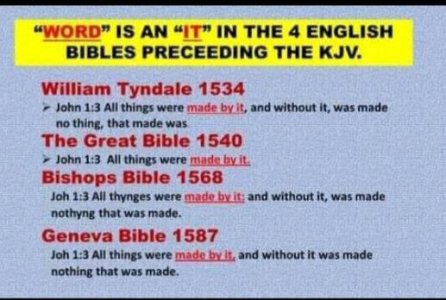He did, but you refuse to see it.
Why did Jesus teach exclusively through parables? So that those you have eyes to see can see, and those who have ears to hear can hear, and those who do not have either can't do either.
Jesus said, "before Abraham was, I AM!" Who is the "I AM"? The God who spoke to Moses through the burning bush. Will you now dispute that it was God speaking to Moses through the bush?
John 1:14
Phil 2:9-11
How blind you are.
You keep claiming that, but you miss the fact that the Logos became a man (John 1:14). Changing from Spirit to man did not change the fact that the Logos was God.
Correct. But again, that does not change the fact that the Logos was God, and was with God, and left Heaven to become a man that we know as Jesus the Christ. So the Logos (being God so He cannot change) has always been a "He".
No, but then Scripture does not say that the wisdom of God came down and took on the form of a man, but the Logos of God did.
Certainly they are, until Scripture says that the Logos became a man. Now, suddenly, we must change from a metaphorical understanding to an actual understanding. The Logos that was with God, and was God, became a man that was still God.

